House Republicans to offer 2 separate bills on immigration
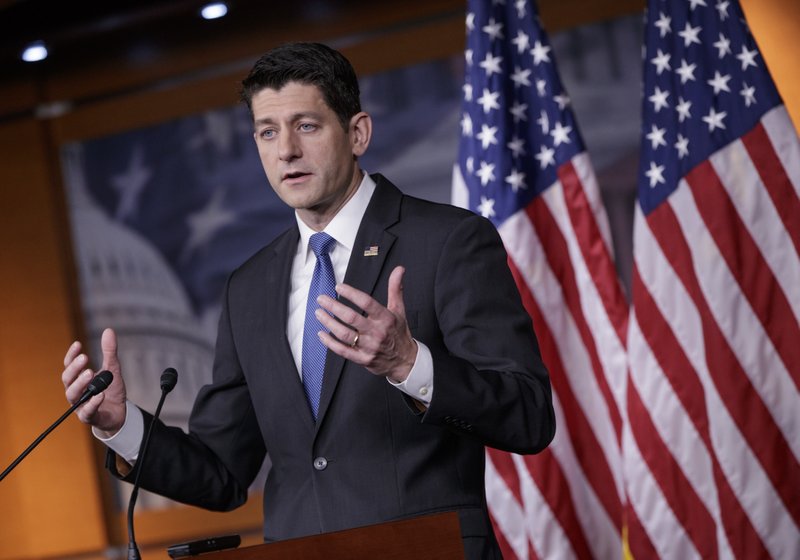
House Republicans are considering next steps on two immigration bills after GOP leaders persuaded moderate Republicans to drop their renegade effort to force votes on legislation that would have protected young “Dreamer” immigrants with a path to citizenship. Instead, leaders reached a deal with moderates and conservatives that will allow two votes on other bills, starting as soon as next week. Moderates were promised a vote on a compromise immigration plan, which remains a work in progress but will likely include a citizenship pathway for the young immigrants who have been living in the country illegally since they were children. Conservatives were guaranteed a vote on their favored approach, which provides a path to legal status but not citizenship. With a truce between the GOP’s factions, House Republicans were set to meet behind closed doors Wednesday to assess the process forward on an issue that has divided the party for years — and that leaders worried would damage the GOP ahead of the election season. A spokeswoman for Speaker Paul Ryan, R-Wis., AshLee Strong, announced the decision late Tuesday after a bargaining session with the lawmakers from the GOP’s conservative and moderate factions ended without agreement on a single package all sides could support. Moderates had been collecting signatures on a petition drive to would force a vote. Strong said the decision to consider two bills would avert the petition drive “and resolve the border security and immigration issues.” Leaders feared if the moderates had been able to collect the 218 votes needed, mostly from Democrats, it would embarrass Republicans by passing a bill that conservatives decried as amnesty for the young immigrants. Rep. Carlos Curbelo, R-Fla., a leader of the moderates’ petition drive, credited his group for forcing the issue to the fore. “Our goal has always been to force the House to debate and consider meaningful immigration reform, and today we’re one step closer,” Curbelo said. Conservatives were also pleased, certain that neither bill would necessarily win enough votes to pass, but confident the outcome would show the political strength of their preferred approach, a bill from Rep. Bob Goodlatte, R-Va. Rep. Mark Meadows, R-N.C., a leader of the conservative Freedom Caucus, said even if the bill fails, voting would show “we can just amend the Goodlatte bill” and try again. Strong said votes on the two bills would happen next week. But Meadows said a vote on the compromise plan may slip to the end of the month as talks continue crafting the legislation. For weeks, the party’s two wings have hunted for ways to provide a compromise that would provide the citizenship pathway and also bolster border security, but have failed to find middle ground. The House ended Tuesday’s session as moderates fell short of their stated goal of having 218 signatures — a majority of the chamber — on a petition that would force votes on other immigration bills that GOP leaders oppose. They had promised to do that by Tuesday in order to trigger those votes later this month. Instead, the centrists accumulated the names of all 193 Democrats but just 23 Republicans — two short of the number required. GOP leaders have strongly opposed the rarely used petition tactic, asserting those votes would probably produce a liberal-leaning bill backed by Democrats and just a smattering of Republicans. They’ve actively lobbied other moderates to not sign the petition, and in talks bargainers have sought legislation both sides could back or alternatively a way for each faction to get a vote on legislation they could support. The alternative measure is still under discussion. But a Republican familiar with the discussions said it would likely be based on a proposal by moderates that would grant the Dreamers a chance for citizenship but also provide the $25 billion President Donald Trump wants for his border wall with Mexico. It would also hew close Trump’s ideas for ending the diversity visa and impose curbs on legal immigration for some immigrant family members, changes that conservatives want. That Republican spoke on condition of anonymity to describe private talks. House Minority Leader Nancy Pelosi, D-Calif., criticized the GOP approach. “If Republicans plan to use Dreamers as a way to advance @realDonaldTrump’s xenophobic, anti-immigrant agenda, they will get a fight from House Democrats,” Pelosi said in a tweet. Any compromise bill would probably also include provisions changing how immigrant children are separated from their families at the border, aides said. Trump’s recent clampdown on people entering the U.S. illegally has resulted in hundreds of children being separated from their families and a public relations black eye for the administration. No law requires those children to be taken from their parents. A 2-decade-old court settlement requires those who are separated to be released quickly to relatives or qualified programs. But the White House has sought to change that and Republicans are seeking language to make it easier to keep the families together longer, said several Republicans. Advocates for immigrants have said the Goodlatte bill would allow minors to be detained longer than is now currently allowed. As talks between the House GOP’s factions continued, leaders worked to derail the moderates’ petition. As part of the effort, party leaders promised votes to later this year on a bill dealing with migrant agricultural workers and requirements that employers use a government online system to verify workers’ citizenship, according to three aides familiar with the negotiations. The Republicans spoke on condition of anonymity to describe private talks. Congress has been forced to deal with the immigration after Trump last year terminated the Deferred Action for Childhood Arrivals program, or DACA. Hundreds of thousands of young immigrants have benefited from DACA or could qualify for it, but risked of deportation as the program ended, though federal court orders have kept the program functioning for now. Senate efforts to pass immigration legislation failed earlier this year. Republished with permission from the Associated Press.
Donald Trump: No immigration deal unless ‘real wall,’ good security
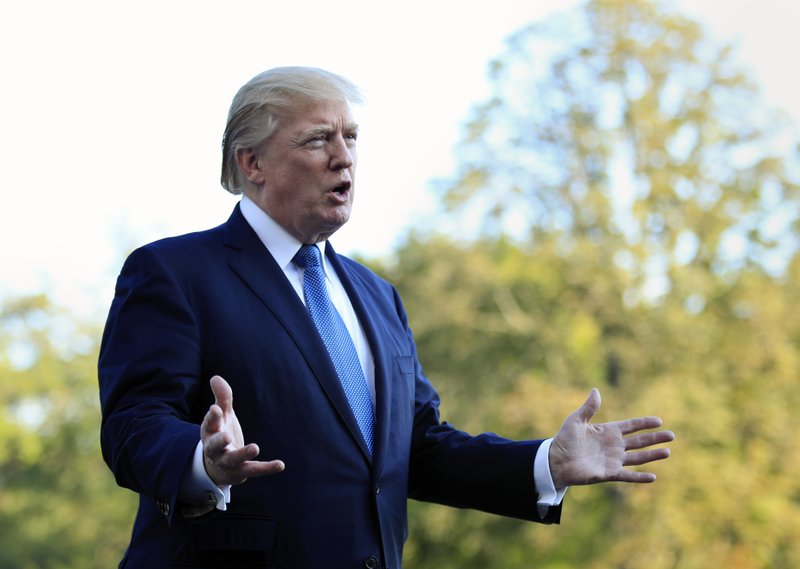
President Donald Trump said he opposes any immigration legislation that doesn’t include “a real wall” along the Mexican border and “very strong border security.” Moderate House Republicans are pushing a deal that could lead to citizenship for young “Dreamer” immigrants brought to the U.S. illegally. But Trump told “Fox & Friends” in an interview that aired Thursday that unless a bill “includes a wall, and I mean a wall, a real wall, and unless it includes very strong border security, there’ll be no approvals from me.” Trump said the United States had “the worst immigration laws in the entire world by far” and said he wanted a comprehensive deal that included all of his priorities. “I think it’s time to get the whole package,” he said. Trump’s comments, taped Wednesday, came as immigration talks are underway among House Republicans, with moderates seeking a way for hundreds of thousands of young immigrants to stay permanently in the U.S. But conservatives say they have no interest in awarding what they call “amnesty” to people who came illegally. Moderates trying to force votes on the issue gained their 21st GOP signature Wednesday. With just four more, they should be able to overcome leadership objections and have votes on immigration bills in late June. House leaders plan a pivotal closed-door GOP immigration meeting on June 7. Trump also took issue with the immigration court system, saying other countries have “security people” who “stand there and say you can’t come in” rather than judges who decide immigration claims. “Whoever heard of a system where you put people through trials? … We’re going to change the system,” Trump said. The administration is dealing with an enormous number of immigration cases along the U.S.-Mexico border, as a sharp increase in deportation arrests under Trump has pushed the backlog above 650,000 cases. Attorney General Jeff Sessions, who oversees immigration courts, has sought major changes to the long-clogged courts. The Justice Department recently announced that more prosecutors and judges will be assigned to help whittle away at the caseload. And the administration has also introduced production quotas for immigration judges, raising concern among judges and attorneys that decisions may be unfairly rushed. Republished with permission from the Associated Press.
Paul Ryan vents frustration over GOP infighting over immigration
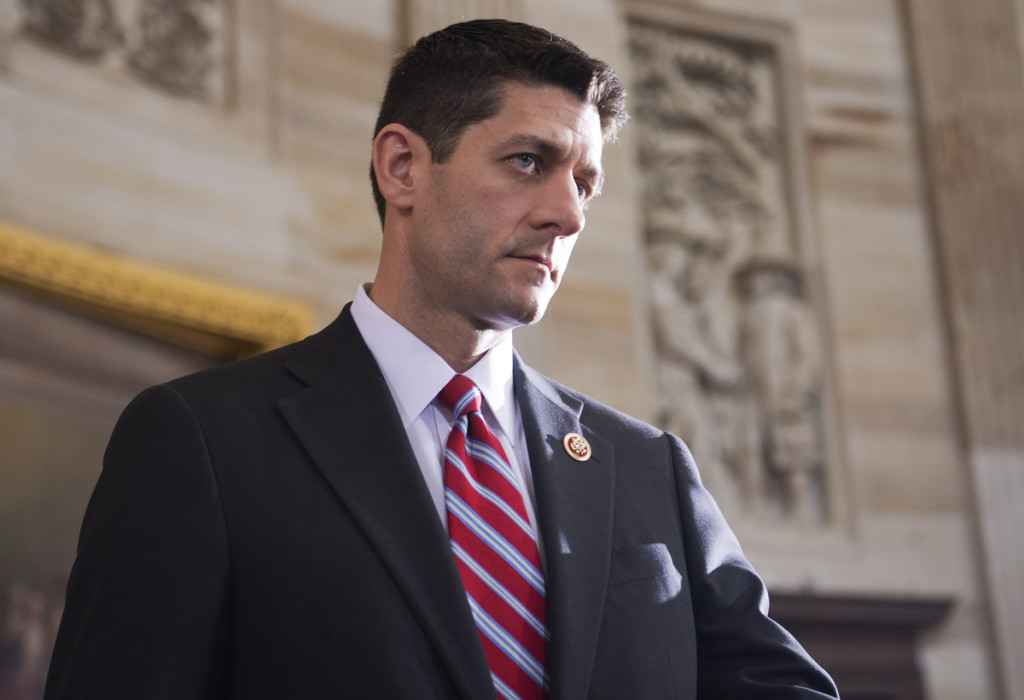
A frustrated Speaker Paul Ryan chided House Republicans for election-season infighting over immigration that sank the party’s farm bill last week, participants in a closed-door meeting said Tuesday. Leaders said they will schedule a late- June showdown over immigration, an issue that has divided the GOP for years. “I think he said ‘gee whiz’ and ‘gosh’ and used the word ‘crap’ once,” Rep. Mark Amodei, R-Nev., said of Ryan’s remarks to his colleagues. “For Paul Ryan, ‘crap’ is pretty blue language.” At a news conference minutes later, the Wisconsin Republican criticized anew an effort by GOP moderates to force votes on immigration by collecting signatures from a majority of House members on a little-used procedure called a discharge petition. The centrists need just five more GOP signatures to prevail. “I can guarantee you a discharge petition will not make law,” Ryan said. That was a reference to the expectation that the votes moderates want to have would produce a bill that President Donald Trump would consider too weak and veto. Ryan also defended himself against calls from conservatives that he step down as speaker in the wake of the party’s anarchy over the farm bill and continuing disarray on immigration. Ryan will retire from the House after this year but has said he will remain as speaker until he leaves office. “Members drafted me into this job because of who I am and what I stand for,” he said. He was elected speaker in 2015 after conservatives pressured his predecessor, John Boehner, R-Ohio, to step aside. Asked if he would remain as speaker all year, he said, “Obviously I serve at the pleasure of the members.” He said Republicans should concentrate on the party’s legislative agenda and not have “a divisive leadership election.” Lawmakers exiting the GOP meeting said leaders told them the House would vote on immigration during the third week of June. They said it was unclear exactly what they would vote on. The centrist push for immigration votes is considered likely to result in passage of a middle-ground measure backed by a handful of Republicans and all Democrats. Ryan has said he will avert that outcome, though it’s unclear how, and many conservatives consider it intolerable. Conservative and moderate GOP leaders negotiated privately Monday over ways to win centrist support for a conservative-backed measure that for months has floundered short of the 218 Republican votes it would need for House passage. They discussed changes that would help young “Dreamer” immigrants brought to the U.S. illegally as children and immigrant farm workers stay longer in the U.S., said one lawmaker who described the private discussions on condition of anonymity. The conservative bill would currently reduce legal immigration, clear the way for construction of President Donald Trump’s border wall with Mexico and let Dreamers stay in the U.S. for renewable three-year periods. All Democrats oppose the measure and it would have no chance of clearing the more moderate Senate. The farm bill crashed last Friday, partly because of opposition by members of the hard-right House Freedom Caucus. They had refused a leadership offer for a vote on the conservative immigration bill in June, which they said was too late. Some members of the Freedom Caucus suggested it would be time for Ryan to step down should moderates prevail. “If we run an amnesty bill out of a Republican House, I think all options are on the table,” said Rep. Scott Perry, R-Pa., a member of the group, when asked if Ryan should remain as speaker if the moderates’ effort succeeds. Many conservatives say legislation protecting immigrants in the U.S. illegally from deportation is amnesty. Other Republicans said it seemed unlikely Ryan would abandon his post. They said potential successors including Majority Leader Kevin McCarthy, R-Calif., so far lack the GOP votes they’d need to win the job. The moderates need 218 signatures — a House majority — on a petition to force votes on immigration bills. With all 193 Democrats expected to sign, the moderates need five more than the 20 signatures they already have. If they succeed, a vote could occur no earlier than late June. Republished with the permission of the Associated Press.
Last-gasp try for immigration deal fell to partisan disputes
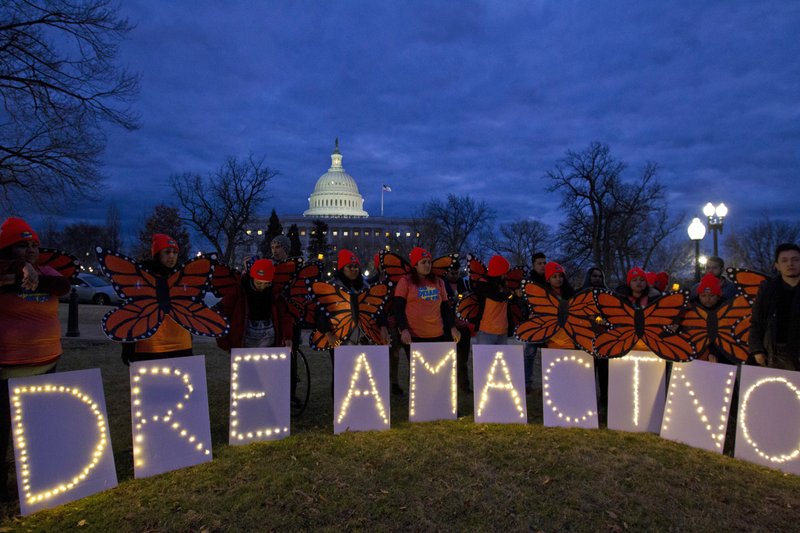
An effort to protect young Dreamer immigrants from deportation never really had much chance of squeezing into the last bill Congress must pass this election year. That’s why bargainers from both parties were surprised when the White House tried anyway. The catch: It was bait to win more money for President Donald Trump’s precious border wall with Mexico. The last-gasp White House attempt came as bargainers completed the huge spending measure that lawmakers aim to approve this week, participants and observers of the budget negotiations said Wednesday. The effort failed, and Trump ended up getting just $1.6 billion for his wall and other border security steps, a year’s worth of funds. That left prospects dim that Congress would act this year to renew the Deferred Action for Childhood Arrivals program, or DACA, as Democrats eyeing a potential House takeover in November’s elections become increasingly resistant to helping Trump build his wall. “Until they stop acting like idiots and stop trying to use Dreamers as hostages to pass their stupid xenophobic laws and stupid ideas like the border wall, nothing changes,” Rep. Ruben Gallego, D-Ariz., a member of the Congressional Hispanic Caucus, said Wednesday. Trump took a different view, expressed in a tweet late Wednesday: “Democrats refused to take care of DACA. Would have been so easy, but they just didn’t care. I had to fight for Military and start of Wall.” By one account, Trump began calling congressional GOP leaders two weeks ago saying he wanted long-term funding for his wall and would trade it for a short-term renewal of DACA. Trump ended the program last year, though federal judges have ordered the administration to keep renewing DACA’s two-year permits until legal challenges to Trump’s action are resolved. A different person said that in talks Sunday at the Capitol, White House officials said they wanted $25 billion — the full amount Trump has proposed for the wall — in exchange for extending DACA protections through September 2020. When Democrats countered that for that sum they wanted a chance at citizenship for 1.8 million immigrants in DACA, the White House turned it down and chances for a deal dissipated. The program, created by President Barack Obama, temporarily shields from deportation a group of immigrants brought to the U.S. illegally as children. The talks were described by aides and advocacy groups from both sides on condition of anonymity because the negotiations were conducted privately. Bargainers discussed trading a three-year DACA extension for three years of wall money, some sources said, or five for five. Some said the administration went further and also wanted Democrats to include more money for enforcement agents and beds for detained immigrants and include language making it easier to deport immigrants in gangs, steps they were unwilling to take. Even a simpler compromise — a DACA extension for wall money — has encountered opposition from both sides but internal divisions, too. Large numbers of Republicans don’t want to protect immigrants here illegally, period, and House Speaker Paul Ryan, R-Wis., has been reluctant to call a House vote on any proposal a GOP majority opposes. Other Republicans have wanted a deal, arguing that immigrants help the economy and booting hundreds of thousands of them who’ve lived here since childhood can be a damaging political problem in November. “We just blew a great opportunity to do something substantial on immigration,” said Sen. Lindsey Graham, R-S.C., who’s long sought a bipartisan deal on the issue. “I think the White House overplayed their hand.” Some Democrats say bringing any stability to immigrants perpetually worried about deportation would be worth the trade-off. But many despise the idea of helping Trump build his wall in exchange for a temporary reprieve for DACA immigrants. They also remember the first two months of this year when Trump seemed to embrace several efforts at compromise, only to walk away from them after conservatives objected. And they have bitter memories of White House opposition to a bipartisan plan that the Senate rejected last month after Trump’s Department of Homeland Security distributed a memo saying the proposal “ignores the lessons of 9/11” and would “be the end of immigration enforcement in America.” Sen. Angus King, I-Maine, said that statement was “not the way to communicate in this situation.” Republished with permission from the Associated Press.
Poll: Most don’t want young immigrants deported
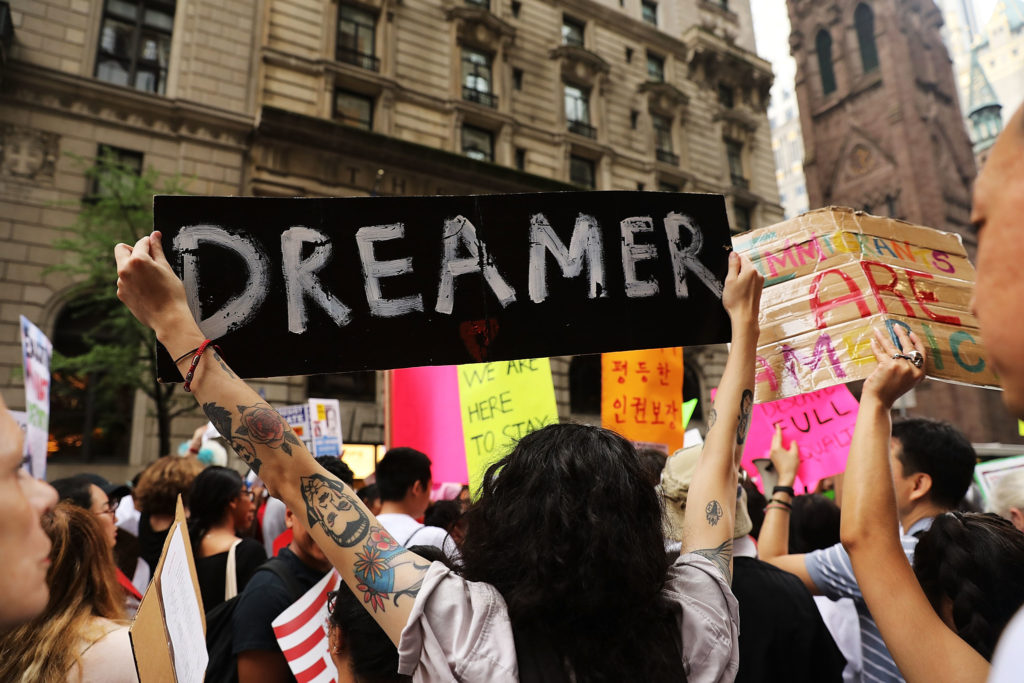
Just 1 in 5 Americans want to deport young immigrants brought to the United States as children and now here illegally, the focus of a politically fraught debate between the White House and Congress. Americans also have largely negative opinions about President Trump’s signature immigration pledge to build a wall along the entire U.S.-Mexico border, according to a new poll by The Associated Press-NORC Center for Public Affairs Research. Just under half – 49 percent – oppose construction while 32 percent support it. On Sunday, Trump told lawmakers his hardline immigration priorities, including the wall, must be approved if he is to go along with protecting the young immigrants from deportation. About 800,000 young immigrants had been given a deportation reprieve under President Barack Obama‘s Deferred Action for Childhood Arrivals, also known as DACA, until Trump ended the program last month. He’s given Congress six months to act. About 60 percent of Americans favor allowing those young immigrants, commonly referred as “Dreamers,” to stay in the U.S. legally, compared to 22 percent who are opposed. Just 19 percent of respondents say all these childhood arrivals should be deported. Sixty-eight percent of Hispanics, 61 percent of blacks and 57 percent of whites favor extending protections. Eight in 10 Democrats favor allowing the young immigrants to stay legally. So do more than 4 in 10 Republicans. “For the ones who are already here, there should be a way for them to stay because it wasn’t their fault,” said Nik Catello, a 57-year-old independent film producer from Orange County, California. “But you have to give them a path to citizenship.” Showing sympathy for the young immigrants does not always translate into softer views on immigration. Catello, for example, favors the construction of a wall along the Mexican border. Among those who favor a border wall, 38 percent also favor allowing “Dreamers” to stay. “What you see is growing support within the voters overall in giving Dreamers a path to citizenship,” said Todd Schulte, president of FWD.us, an immigration advocacy group founded by Facebook CEO Mark Zuckerberg. “Giving Dreamers the ability to earn citizenship is the most popular bipartisan, not just immigration, issue, the single most united issue in the country.” When Trump ordered the phase-out of the DACA program last month, he gave 150,000 young immigrants the chance to quickly renew permits that are to expire before March 5. Officials say that more than 35,000 didn’t make his Oct. 5 deadline. And many others will see their status begin expiring after March 5, unless Congress acts before then. Trump suggested at the time that he was eager for a deal to settle the matter, telling reporters, “I have a love for these people and hopefully now Congress will be able to help them and do it properly.” He also tweeted that if Congress was unwilling to find a fix, he would “revisit this issue!” in six months. Trump had previously said he wanted a DACA deal to include significant money for border security and eventual funding for the wall. But the priorities released by the White House this week went far beyond that. The White House’s demands include limiting green cards to spouses and minor children of U.S. citizens and lawful permanent residents, hiring 10,000 more immigration enforcement officers and making it easier to deport unaccompanied children. The White House says the measures are to soften the impact on the U.S. caused by granting benefits to DACA recipients. Carolyn Kurtz, a 62-year-old retired engineer from Monument City, Colorado, who wants protections for young immigrants, said Trump hasn’t done “the research necessary” on immigration. “Do I believe that immigration should be more carefully monitored and maybe limited? Yes. But the way he wants to go about it is not the way to do it,” Kurtz said. She called the president’s stance “very close-minded.” Two-thirds of Americans – 64 percent – say they disapprove of Trump’s handling of immigration, and a similar percentage – 65 percent – say the same of his handling of foreign policy. Both of those are similar to Trump’s overall approval rating. The poll also revealed more Americans favor than oppose another aspect of Trump’s immigration policy – his latest travel ban. Forty-four percent favor it compared to 37 percent who say they are against the new rules. In September, the administration announced the most recent restrictions which affect citizens of Chad, Iran, Libya, North Korea, Somalia, Syria, and Yemen – and some Venezuelan government officials and their families. They are to go into effect Oct. 18. It was the administration’s third try at limiting travel after a broader ban sparked chaos in January and was challenged in courts across the country. The AP-NORC poll of 1,150 adults was conducted Sept. 28-Oct. 2 using a sample drawn from NORC’s probability-based AmeriSpeak panel, which is designed to be representative of the U.S. population. The margin of sampling error for all respondents is plus or minus 4.1 percentage points. Respondents were first selected randomly using address-based sampling methods, and later interviewed online or by phone. Republished with permission from the Associated Press.
Nancy Pelosi: Put off immigration overhaul, save ‘Dreamers now’
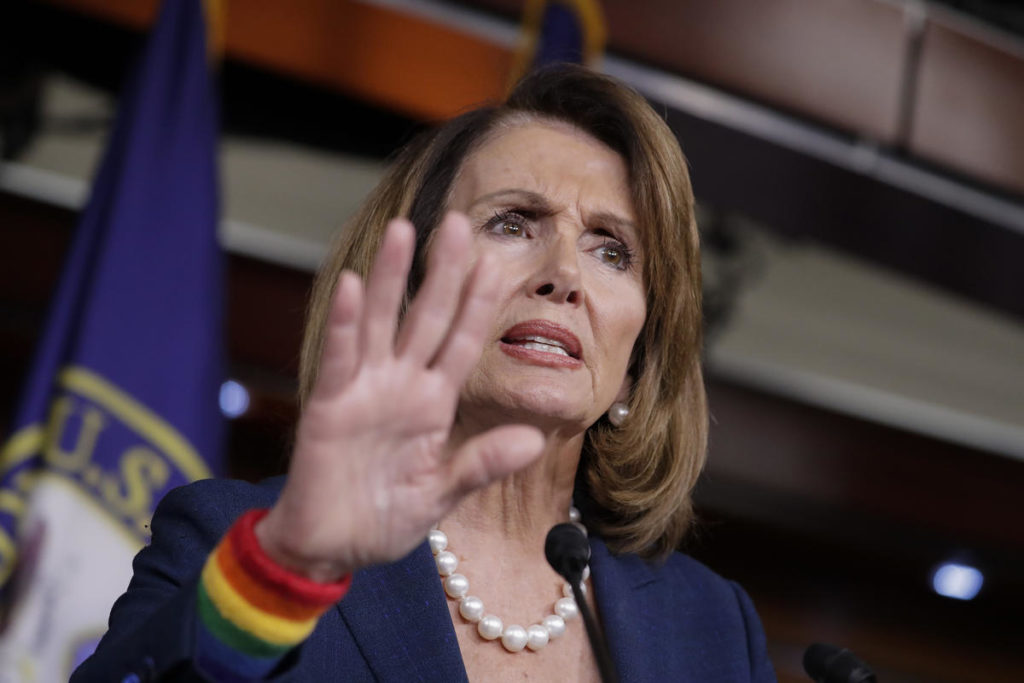
House Democratic leader Nancy Pelosi says she respects young immigrants who shouted her down at an event in San Francisco, but says their call for a comprehensive immigration overhaul is premature. Pelosi says lawmakers must focus on protecting young immigrants brought to the United States illegally as children. Pelosi says: “We are not in a position where we can say all or none. We have to save the Dreamers now.” “Dreamers” is a term used for young immigrants who were brought to the country illegally as children or by parents who overstayed visas. Protesters disrupted an event in Pelosi’s hometown of San Francisco on Monday. They showed their displeasure over her recent meetings with President Donald Trump over ways to continue the program that protects young immigrants from deportation. Republished with permission from the Associated Press.
President Donald Trump says he’s torn over young immigrants
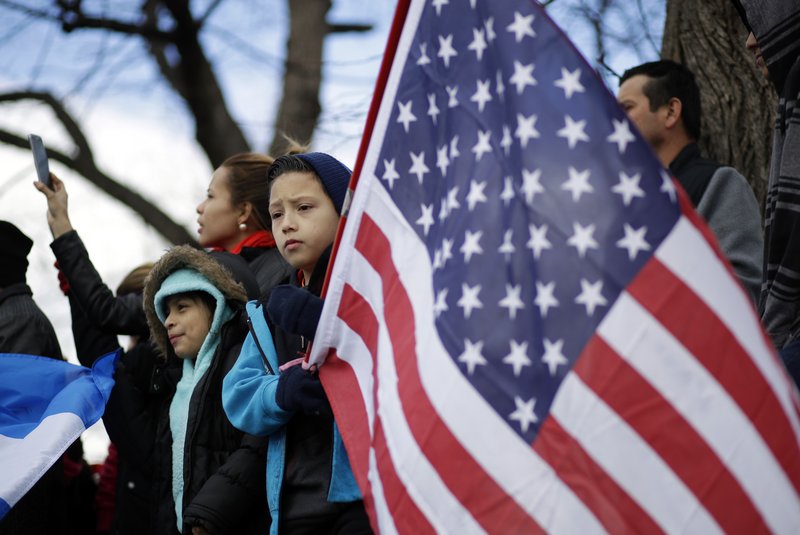
President Donald Trump spoke in unusually personal terms as he answered a question at a White House press conference about hundreds of thousands of young immigrants whose fate rests in his hands. “We’re going to show great heart. DACA is a very, very difficult subject for me, I will tell you. To me, it’s one of the most difficult subjects I have,” the president said Thursday in a rare admission of uncertainty. “Because you have these incredible kids, in many cases,” he said. Trump was referring to his predecessor’s Deferred Action for Childhood Arrivals program, which allows young people who were brought into the country illegally as children to stay and obtain work permits. The program has protected about 750,000 immigrants since its inception in 2012. Trump had promised during his campaign to “immediately terminate” what he’d deemed “President Obama’s two illegal executive amnesties.” But he has yet to move forward on the issue, despite pressure from immigration hard-liners, including Rep. Steve King of Iowa. While he had previously suggested those covered by the program would be safe from immediate deportation, the president has yet to say whether they will be allowed to continue living and working in a country that is the only many have known. On Thursday, Trump suggested he still has work to do to convince reluctant congressional leaders to get on board. “I have to deal with a lot of politicians, don’t forget. And I have to convince them that what I’m saying is, is right,” he said. But the president suggested that he’s been mulling a solution that goes beyond simply overturning DACA, as he had pledged. “You know, I love these kids. I love kids. I have kids and grandkids. And I find it very, very hard doing what the law says exactly to do,” he said. “And you know the law is rough. I’m not talking about new laws. I’m talking the existing law is very rough. It’s very, very rough.” Immigration lawyers, activists and those protected by the program have been waiting anxiously for any signs of what Trump might do since he took office last month. The issue returned to the headlines this week after a Seattle-area man participating in the program was detained by immigration agents. The U.S. Justice Department said Daniel Ramirez Medina, 23, admitted to having gang ties. But one of Ramirez’ lawyers, Mark Rosembaum, has said the allegations are false. Trump’s comments came as immigrants across the country were staying home from work and school as part of “A Day Without Immigrants” national protest. Many businesses have closed in solidarity to demonstrate the importance of immigrants to the American economy. Republished with permission of The Associated Press.
Donald Trump mulling fate of young immigrants protected by Barack Obama
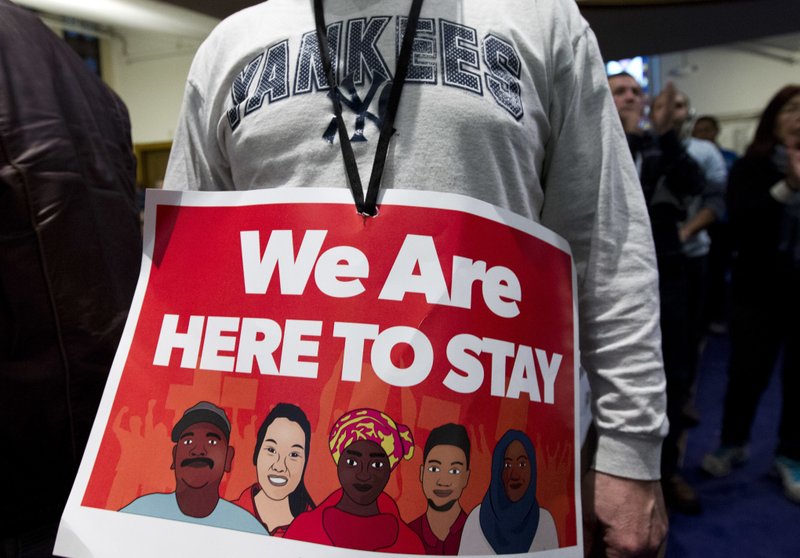
Missing from President Donald Trump‘s blitz of immigration orders was any mention of the fate of hundreds of thousands of young immigrants protected from deportation by former President Barack Obama. That omission has left immigration advocates hopeful Trump has softened his opposition to what he once derided as “illegal amnesty,” while others say he has quickly abandoned a core campaign pledge. Trump and Republican leaders in Congress have said they are working on a plan that will address the status of the roughly 750,000 immigrants currently protected by the Deferred Action for Childhood Arrivals program, or DACA. The program allows young people who were brought into the country illegally as children to stay and obtain work permits. Neither the president nor GOP leaders have disclosed details on their discussions, although both have suggested those currently protected under the program won’t face immediate deportation. Whether they will be allowed to continue to work remains unclear. Trump said this past week he intends to reveal a proposal within a month. “They shouldn’t be very worried,” Trump told ABC News. “I do have a big heart. We’re going to take care of everybody. … Where you have great people that are here that have done a good job, they should be far less worried.” Trump’s delay and the tone of his remarks were a striking shift from the campaign, when he promised to quickly end the program and labeled it amnesty. “We will immediately terminate President Obama’s two illegal executive amnesties, in which he defied federal law and the constitution to give amnesty to approximately 5 million illegal immigrants,” Trump said in August. His current approach appears to be a concession to Republican leaders in Congress who have called for a less aggressive stand on an issue that has pushed some Latino voters away from the party. House Speaker Paul Ryan, R-Wis., has argued for a more compassionate approach in dealing with these young immigrants. He has discussed the issue privately with the president and recently said congressional Republicans had been working with his team on a solution. DACA was arguably the most significant and high-profile change Obama made to immigration policy, one he said he made only after Congress failed to enact a broader immigration overhaul. The status of the immigrants, some of whom have little or no connection to the country where they were born, has been a focus of advocates’ anxiety and activism since Trump’s election. The program would be relatively simple for Trump to reverse. The policy does not require an executive order. As of Friday afternoon, the U.S. Citizenship and Immigration Services said it was still processing DACA-related work permits. Trump’s White House is thought to be divided on the how to handle the issue. Those who have pushed Trump to embrace more restrictive immigration policies, including policy guru Stephen Miller, are said to prefer a harder line. On the other side are those in the White House considered more moderate, including chief of staff Reince Priebus, who said recently that the White House is planning to work with House and Senate leadership “to get a long-term solution on that issue.” Under a draft executive order first published by the news site Vox, the government would immediately halt processing new DACA applications, but would allow those who already have work permits to retain them until they expire sometime over the next two years. Trump faces pressure from GOP hard-liners, including Iowa Rep. Steve King, who has chafed at signals from Trump aides that immigrants covered by DACA are not a priority for deportation. King said Trump risks a backlash from his political base if he doesn’t act swiftly “because it was a clear and definitive promise that he made.” “And when you hear these kinds of statements coming out of the chief of staff and some of these statements that echo pretty closely out of the speaker of the House, it gives real pause to rule of law conservatives,” he said. Advocates on both sides are expecting a compromise in which the president perhaps ends DACA and then works with Congress on a permanent solution that allows these immigrants to stay in the country. Mark Gonzales, the president of the Hispanic Action Network, said Trump’s actions this past week have “definitely shaken up our Hispanic community and the immigrant community in particular.” But he said that he’s confident from Trump and his aides’ rhetoric that young immigrants currently protected by DACA don’t have to be alarmed. “He’s making clear that even though they’re going to repeal DAPA and DACA, the Dreamers are not the ones they’re going to be coming after,” said Gonzales. “They’re going to find a way to deal with the Dreamers in the way that is not deportation. That’s good news to our ears.” Mark Krikorian, the executive director of the conservative Center for Immigration Studies, which advocates for tighter restrictions on immigration, said he’s open to a compromise in which, for instance, those previously covered by DACA receive green cards in exchange for other concessions. “Suspending DACA processing is an extremely simple, clear-cut thing. And if they haven’t done it by now, there’s some reason for it,” said Krikorian. Young people covered by the program have been glued to their televisions anytime Trump takes action, said California lawyer Sergio Garcia, who estimates he’s handled more than 15,000 DACA applications. There’s “a lot of anxiety, uncertainty of not knowing what tomorrow holds,” he said. Republished with permission of The Associated Press.
Donald Trump’s new tone on immigrant kids divides GOP
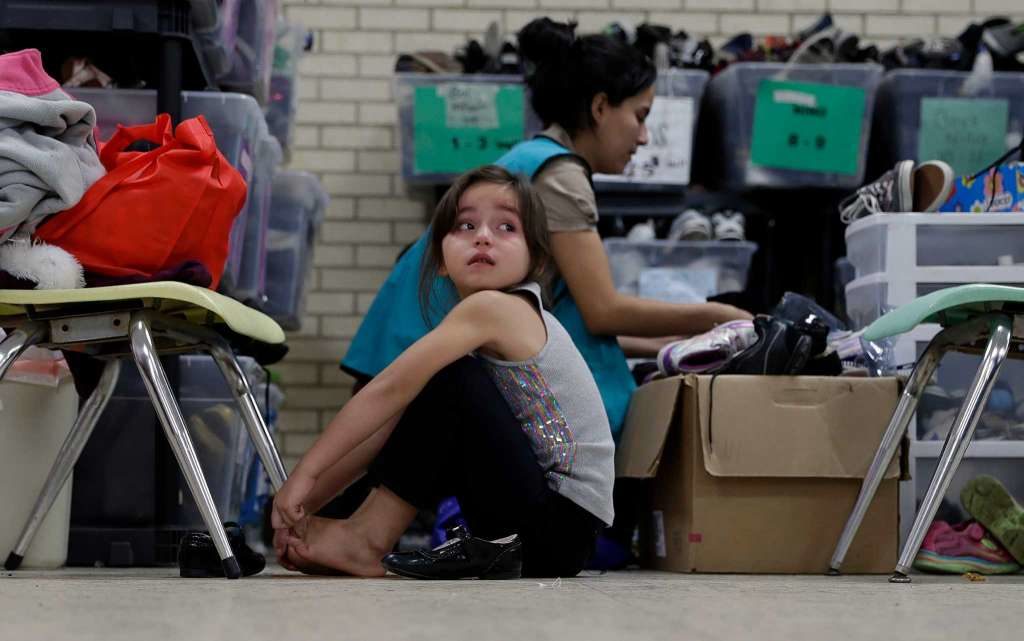
Donald Trump‘s promise to “work something out” for immigrants brought here illegally as kids is dividing fellow Republicans, underscoring how difficult it will be for Congress to take any action on immigration, whether it’s building a wall or dealing with immigrant youths. Complicating matters, the president-elect’s advisers worked to walk back his comments almost as soon as they were published, with one transition aide demanding anonymity to deny that Trump intended to set any new policy. Trump’s remarks about the young immigrants, known to their supporters as “Dreamers,” came in a Time magazine interview in connection with his designation as “Person of the Year.” During the campaign Trump pledged to “immediately terminate” President Barack Obama‘s executive actions on immigration, including the 2012 Deferred Action for Childhood Arrivals, known as DACA, which has extended work permits and temporary deportation relief to more than 700,000 immigrants brought illegally to this country as youths. But in the interview published Wednesday he adopted a far more sympathetic tone. “We’re going to work something out that’s going to make people happy and proud,” Trump said. “They got brought here at a very young age, they’ve worked here, they’ve gone to school here. Some were good students. Some have wonderful jobs. And they’re in never-never land because they don’t know what’s going to happen.” Trump did not offer details, and Time said that he did not back off his pledge to undo Obama’s executive actions. But Republicans who’ve supported congressional action to help immigrant youths welcomed Trump’s new tone. “I can tell you I’m very relieved at his comments today and I think folks back home in my district and across the country are going to be very relieved as well,” said Rep. Mike Coffman, R-Colo. “Obviously Dreamers is one part of the equation, I clearly hope we do more. But I think that’s got to be the top priority to do.” Trump’s comments were also welcomed by some Democrats. Senate Democratic leader Harry Reid of Nevada cited them in an interview Thursday on NPR as evidence that Trump is “not as bad as I thought he would be.” For immigration hard-liners, on the other hand, Trump’s comments set off alarm bells. “We have an obligation to restore the rule of law and you can’t do that while you’re rewarding people who break it,” said Rep. Steve King, R-Iowa. “It’s the principle of the rule of law that’s at stake and I’m hopeful that prudent heads will prevail.” Because immigrants must reapply for DACA and work permits every two years, even if he doesn’t proactively undo DACA Trump could effectively cancel out the program over time by taking no action to renew it. But a transition aide, demanding anonymity because he was not authorized to speak on the record, downplayed Trump’s comments and said his original promise to roll back Obama’s executive actions stood. Obama announced the DACA program after Congress failed to pass legislation giving a path to legal status for Dreamers. Subsequently, a comprehensive, bipartisan bill passed the Senate in 2013, but it stalled in the GOP-controlled House. Obama ultimately took another, broader, executive action, aimed mostly at protecting adult immigrants with U.S. citizen children, but that one got blocked in court. Lawmakers’ repeated failures during the Obama administration to come together on immigration overhaul legislation leaves it uncertain whether Congress will be able to pass anything at all on the divisive topic with Trump in the White House, despite his tough campaign rhetoric about building a border wall and ousting criminal immigrants. Trump could take some steps on his own, but would need Congress for major policy changes, including any permanent protections for Dreamers. Sens. Lindsey Graham, R-S.C., and Dick Durbin, D-Ill., planned to introduce a bill Thursday to address status for Dreamers. House Republicans want to pass a border security bill to make good on Trump’s repeated campaign promises to build a wall on the 2,000-mile U.S.-Mexico border, but key lawmakers and Trump himself have already suggested that it could end up including fencing or a “virtual” wall that falls short of the big wall Trump promised Mexico would pay for. And even if a border security bill does pass the House, Senate Democrats are likely to balk at passing it without also taking steps to offer legal status to the 11 million immigrants living in this country illegally, something that House Republicans could reject in turn. The opposing views suggest that, despite the prominence of immigration as an issue in the presidential campaign, inaction may be the likeliest end result on Capitol Hill. Republished with permission of The Associated Press.
Dreamers who signed up for deportation protection now feel exposed

Hundreds of thousands of young immigrants living in the country illegally willingly came out of the shadows and identified themselves to the Obama administration on the promise that they’d be safe from deportation and allowed to work. Some may now regret that decision. President-elect Donald Trump has promised to immediately scrap the program that protected these immigrants. If he does, it’s not clear whether he would take action against the more than 741,000 participants. But if he decides to pursue them, the government now has their addresses, photographs and fingerprints. Twenty-year-old Nancy Villas was among the first to apply for the Deferred Action for Childhood Arrivals program in the summer of 2012, waiting in line hours at a sign-up site at Chicago’s Navy Pier. Since then she’s been working part time at a child care center to pay for college classes. Now she’s worried she may eventually be forced to return to Mexico, a country she left when she was 9. “I knew it was the only way to have better opportunities,” Villas said. “I took the risk without thinking that somebody would want to take it away.” Trump made illegal immigration the cornerstone of his campaign, promising to build a massive wall along the Mexican border and deport millions of people living in the country illegally. Once he takes office, Trump can almost immediately rescind the promised protection and, with it, likely void the accompanying work permits. But there is little to suggest that he would move swiftly to deport program participants. In a post-election interview with CBS’ “60 Minutes,” Trump said he would focus initially on criminal immigrants living illegally in the U.S. He said that could be about 2 million to 3 million people, though that figure is likely inflated. Mark Krikorian, executive director for Center For Immigration Studies, said the fears of program participants may be overblown. “Unless there’s a crime issue or something specific that’s going to draw attention to an individual, I can’t see how they’d be a priority,” said Krikorian, whose think tank describes itself as low-immigration, pro-immigrant. President Barack Obama initiated the program to shield from deportation young immigrants, some of whom don’t even remember their native countries. It didn’t give the immigrants legal status, only “deferred action” – meaning they wouldn’t face deportation while they participated. There was never a guarantee that it would last beyond Obama’s term as president. A former immigration official who helped craft the program, John Sandweg, said the White House and the Homeland Security Department considered the reality that a future president could end it. But at the time, he said, it appeared that revoking already-approved protections would be politically difficult. “These are the kinds of kids you should bring out of the shadows,” said Sandweg, a former acting director of Immigration and Customs Enforcement. “I don’t think anyone envisioned a President Trump when this was created.” Trump wasn’t subtle about his opposition to the program. He called it an “illegal amnesty” and promised to “immediately terminate” the program. And since winning office, Trump has said he will nominate immigration hardliner Sen. Jeff Sessions as attorney general. As he considers other Cabinet vacancies, Trump has met with Kansas Secretary of State Kris Kobach, who led his state’s court fight to prevent an expansion of the deportation protection plan. When the program started, the Obama administration suggested that application files would not generally be used for enforcement efforts. U.S. Citizenship and Immigration Services addressed the concern in its published “frequently asked questions,” saying information would be shared with enforcement officials only if someone “meets the criteria” for deportation proceedings. But revoking the deportation protection would make those young immigrants almost immediately eligible to face deportation. Sandweg said going after participants would be a massive logistical undertaking that would only worsen backlogs in an already overburdened immigration court system where many people wait years for a final decision. Adding about 750,000 to the court system “would do nothing for public safety,” Sandweg said. Nonetheless, the mere prospect of that has prompted some Democratic lawmakers to ask Obama to protect these immigrants with pardons before he leaves office. And advocates for the young immigrants have pledged to keep up their fight to win public and political support for overhauling immigration laws. “We organized across the country, we shared our stories publicly and we came together. We took direct actions and held politicians accountable,” said Cristina Jimenez, executive director and co-founder of United We Dream. Under a Trump administration, Jimenez said, that won’t change. Republished with permission of the Associated Press.
Congressional bill moves to end “loophole” in effort to put American citizens ahead of illegal immigrants for in-state college tuition

Two Alabama congressmen joined an effort to prevent illegal aliens from taking advantage of in-state college tuition rates as original cosponsors of newly filed legislation. U.S. Congressman Mo Brooks and Congressman Mike Rogers joined Paul Gosar (R-AZ), a steadfast champion against illegal immigration on his bill. Gosar issued a statement Friday afternoon after introducing the House companion to Louisiana Senator David Vitter‘s (R-LA) legislation that would prevent illegal aliens, not in lawful immigration status, from receiving in-state college tuition benefits. Despite federal policy prohibiting states from awarding post-secondary education benefits to illegal immigrants on the basis of residency, currently, at least 19 states have exploited a loophole in the law by allowing children who were illegally brought to the country by their parents — also called Dreamers — to have access to in-state tuition and grants. States are sidestepping the law by offering alternative criteria — such as graduation from an in-state high school — as the prohibition only applies if the state uses residency as the eligibility requirement. Eight states have taken a step further by allowing undocumented students to qualify for state-based financial aid. “It is unthinkable that some states are circumventing federal law to allow illegal immigrants to receive in-state tuition, while other legal American citizens, playing by the rules, have to pay out-of-state tuition to attend public universities,” Gosar said of the growing problem. “With a stagnant economy, American students are facing enough challenges upon graduating from college and shouldn’t bear more financial burdens as a result of loopholes crafted by attorneys that put illegal aliens not in lawful immigration status ahead of U.S. citizens.” Endorsed by the Federation for American Immigration Reform (FAIR) and NumbersUSA, Gosar’s bill H.R. 3566 and Vitter’s bill S.60, would close the “loophole” in question. The legislation states “an alien who is not lawfully present in the United States shall not be eligible for any postsecondary education benefit unless every citizen and national of the United States is eligible to receive such a benefit (in no less an amount, duration, and scope).” This legislation is an answer to America’s sluggish employment numbers, especially those of millennials. “If you look at the numbers starting in 2009, we’ve been in the longest sustained period of unemployment since the Bureau of Labor Statistics began collecting their data following World War II,” says David Pasch, a spokesman for Generation Opportunity to Newsweek in June. Senator Vitter agrees. “Some of our nation’s highest unemployment rates are among recent college graduates, which is certainly why we should be supporting policies that provide American students with the opportunity to go to college and compete for good jobs,” Vitter said. “American students should always come first, and it’s unfortunate that so many states are blatantly disregarding the spirit of existing immigration law, which could end up putting illegal immigrants ahead of American citizens.”


